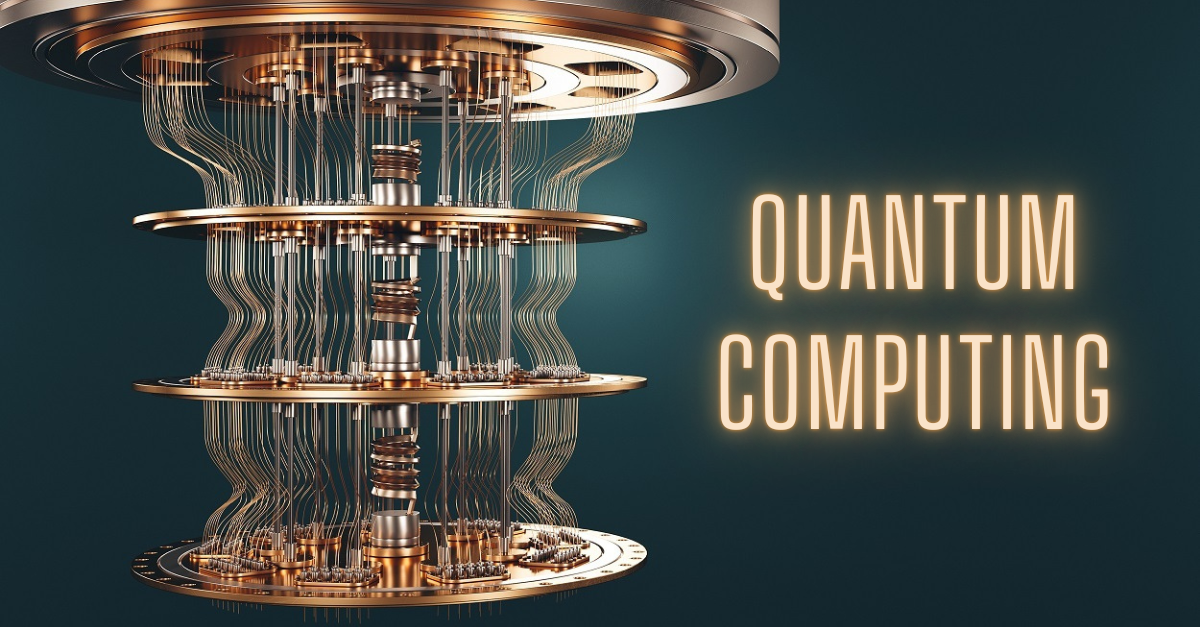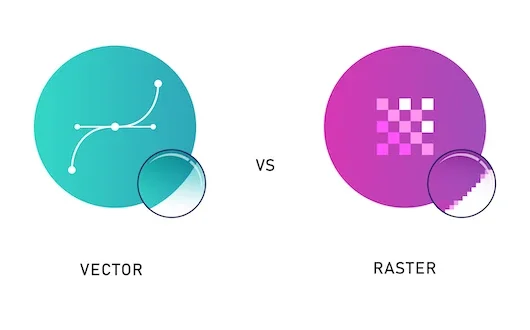Introduction
Imagine a computer so capable it seem unravel issues that would take today’s quickest supercomputers thousands of years—in just seconds. That’s the guarantee of quantum computing, a groundbreaking field that might change everything from medicine and fund to cybersecurity and artificial intelligence.

For decades, we’ve depended on classical computers, which utilize bits to handle data as either 0s or 1s. But quantum computers work on an totally diverse level. They tackle the interesting, intriguing principles of quantum mechanics—like superposition and entanglement—to perform calculations in ways that oppose our regular understanding of how the world works.
While quantum computers are still in the early stages of development, major tech companies and researchers around the world are racing to open their full potential. But what precisely is a quantum computer? How does it work, and why is it so diverse from the gadgets we utilize today?
In this article, we’ll break down the essentials of quantum computing in a way that’s basic, clear, and ideally mind-blowing.
Classical vs Quantum Computers
To understand what makes quantum computers so special, let’s first take a see at how traditional—or classical—computers work.

Classical computers prepare data utilizing bits, the littlest unit of information. A bit can have one of two conceivable values: 0 or 1. Everything your computer does—from browsing the web to running complex software—is eventually broken down into groupings of these 0s and 1s. These bits stream through rationale entryways and circuits, performing operations in a straight, step-by-step manner.
Now, enter the world of quantum computers—where things get a little… abnormal (but in a great way).
Instead of bits, quantum computers utilize qubits (brief for quantum bits). Unlike classical bits, a qubit can be 0, 1, or both at the same time, much obliged to a quantum property called superposition. Imagine flipping a coin—it’s not fair heads or tails whereas in the discuss; it’s a blend of both. That’s kind of what a qubit is like.
But it gets indeed more curiously. Qubits can too be entrapped, meaning the state of one qubit is specifically associated to the state of another, no matter how distant separated they are. This allows quantum computers to prepare a enormous number of conceivable outcomes at the same time, or maybe than one at a time like classical machines.
In short:
- Classical computers are like perusing one book at a time.
- Quantum computers are like skimming an whole library all at once to discover the answer.
That’s why quantum computers are so exciting—they seem handle issues that are essentially as well complex or time-consuming for classical computers to handle, indeed with the quickest processors in the world.
Key Quantum Concepts (with analogies)
Break these down with relatable analogies:
- Superposition – like spinning a coin: it’s both heads and tails until you stop it.
- Entanglement – a mysterious connection between particles: change one, and the other responds instantly, even far away.
- Quantum Interference – how quantum states can amplify correct answers and cancel out wrong ones.
How Do Quantum Computers Work?
Quantum computers might sound like something out of science fiction, but they’re very real—and fantastically complex. To get it how they work, let’s break it down step by step.
At the heart of a quantum computer are qubits, the quantum version of classical bits. Not at all like normal bits that are either 0 or 1, qubits can exist in a combination of both states at once (superposition), which gives quantum computers their special power.
But qubits aren’t fair coasting around on their own—they’re controlled and controlled utilizing something called quantum doors. These entryways perform operations on qubits, comparable to how rationale entryways work in classical computers. In any case, instep of basic 0s and 1s, quantum doors bargain with probabilities and complex numbers. They permit the computer to construct quantum circuits that investigate numerous arrangements to a issue at the same time.
Here’s how it all comes together:
Building Qubits
Creating and keeping up qubits is one of the greatest specialized challenges. Qubits can be made utilizing different physical systems, such as:
- Superconducting circuits (utilized by IBM and Google)
- Trapped ions (utilized by IonQ)
- Photons (particles of light)
- Quantum dots or impartial atoms
Each strategy has stars and cons, but all require exceedingly controlled environments.
A Delicate Balance
Qubits are amazingly sensitive. Minor changes in temperature, clamor, or indeed enormous beams can throw them off. That’s why most quantum computers are housed in huge, supercooled systems that operate at temperatures near to outright zero—colder than external space! These situations offer assistance protect the fragile quantum states long sufficient to perform calculations.
Quantum Circuits
To illuminate a issue, a quantum computer uses a series of quantum entryways to control qubits through a handle known as a quantum circuit. At the conclusion, the result is measured, and the quantum state collapses into a clear reply, fair like how flipping a turning coin inevitably lands on heads or tails.
In substance, a quantum computer works by setting up a issue as a quantum puzzle, investigating all conceivable ways at once, and at that point measuring the result to discover the most likely reply.
What Can Quantum Computers Do?
Realistic current uses:
- Simulating molecules for drug discovery
- Optimizing complex logistics problems
- Breaking cryptographic codes (future potential)
Contrast what’s hype vs reality — they won’t replace your laptop!
Challenges in Quantum Computing
- Error correction and decoherence
- Scaling qubits while maintaining stability
- Expensive and complex infrastructure
Who’s Working on This?
Quantum computing isn’t fair an academic interest anymore—it’s a worldwide race. A few of the greatest names in tech, along with cutting-edge startups and research institutions, are all pouring billions into creating the world’s to begin with viable quantum computers.
Here’s a fast see at who’s driving the charge:
IBM
IBM has been one of the most punctual and most steady players in the field. Their IBM Quantum program offers cloud access to genuine quantum computers, allowing researchers and engineers around the world to test with real qubits. They’ve moreover discharged point by point roadmaps appearing their objective to scale up to thousands of qubits in the coming years.
In 2019, Google made headlines by claiming “quantum supremacy”—the point where a quantum computer performs a assignment past the reach of any classical computer. Their 53-qubit processor, Sycamore, completed a particular computation in 200 seconds that would have taken a supercomputer thousands of a long time (in spite of the fact that this is still talked about). Google’s long-term objective? A million-qubit system.
Microsoft
Microsoft is taking a diverse way with its Azure Quantum stage and investigate into topological qubits, a more steady sort of qubit that might offer assistance fathom quantum mistake redress issues. Whereas still in early stages, Microsoft’s approach seem pay off huge in the long run.
Intel
Intel is bringing its semiconductor fabricating ability into the blend, creating silicon-based qubits that can be fabricated utilizing comparable processes as classical chips. Their focus is on building versatile and solid hardware for future quantum computers.
Startups Making Waves
- D-Wave: Based in Canada, D-Wave builds quantum annealers, a extraordinary type of quantum system designed for optimization issues. Their systems are as of now being utilized commercially.
- Rigetti Computing: A U.S.-based startup focused on superconducting qubits and hybrid classical-quantum systems.
- IonQ and Quantinuum: Driving the charge in caught particle quantum computing, known for high-fidelity and steady qubits.
Governments & Research Labs
Countries like China, Germany, and the United States are investing heavily in quantum R&D. The U.S. National Quantum Activity, Europe’s Quantum Lead, and China’s quantum satellite projects are all working to secure authority in the quantum age.
Why Should You Care?
At this point, you might be thinking: “Okay, quantum computers sound cool, but why ought to I care?” Reasonable question!
Here’s the thing—quantum computing isn’t fair around quicker computers. It’s approximately tackling issues that are right now incomprehensible to split, indeed for the world’s most effective supercomputers. And the impacts might touch each portion of your life—even if you never utilize a quantum computer directly.
Revolutionizing Medicine
Quantum computers seem mimic complex particles and chemical responses with extraordinary accuracy. That implies speedier disclosure of unused drugs, personalized medicine, and indeed cures for illnesses we right now struggle to treat.
Smarter Finance & Logistics
From anticipating market trends to optimizing worldwide shipping routes, quantum computing might crunch enormous datasets and make superior, speedier choices. Companies may spare billions—and pass a few of those benefits on to you.
Breaking & Reinventing Cybersecurity
Here’s a enormous one: quantum computers may in the long run break current encryption strategies, which are the establishment of all online security. But they might too offer assistance us create quantum-safe encryption—ushering in a unused time of advanced safety.
Tackling Climate Change & Big Science
From modeling climate systems more precisely to finding unused materials for clean vitality, quantum computing might offer assistance us handle a few of the greatest worldwide challenges.
The Future of Quantum Computing
Quantum computing is still in its early stages—but the future looks fantastically promising, and a small mysterious.
Right now, most quantum computers are in research labs or cloud-accessible test situations. They’re amazing, but still moderately constrained. The following enormous objective is accomplishing quantum advantage—that’s when quantum computers can reliably fathom real-world issues way better than classical ones.
What Needs to Happen?
To reach that point, researchers and engineers are working on three major challenges:
- Scalability – Today’s quantum machines have tens or hundreds of qubits. We’ll likely require thousands or millions of solid qubits to handle complex problems.
- Stability – Quantum states are delicate. Analysts are creating way better mistake adjustment strategies to keep qubits steady and accurate.
- Accessibility – Eventually, quantum computing power will be accessible to developers and industries worldwide through the cloud, fair like how we get to classical supercomputers today.
What Could the Future Look Like?
- In 5–10 years: We may see quantum computers utilized in specialized industries like pharmaceuticals, materials science, or cryptography.
- In 10–20 years, Hybrid systems combining classical and quantum computing may ended up the standard in inquire about and business.
- Beyond that? Whole businesses might be reshaped, unused ones made, and issues we once thought unsolvable may at last meet their match.
Hype vs. Reality
It’s critical to remain grounded—quantum computers won’t be supplanting your tablet anytime before long. They’re not “quicker computers” for everything; they’re devices for exceptionally particular, fantastically complex tasks.
Still, as the innovation develops, quantum computing has the potential to open drastically unused conceivable outcomes. It’s not fair almost doing things faster—it’s almost doing things we once thought were outlandish.
Conclusion
Quantum computing may still feel like science fiction, but it’s rapidly getting to be science reality. By tackling the unusual and intriguing rules of quantum mechanics, these next-generation machines guarantee to revolutionize how we unravel a few of the world’s most complex problems.
While we’re still in the early days, the advance is real—and fast. From worldwide tech monsters to agile new companies and national governments, a few of the brightest minds on the planet are dashing to open quantum computing’s full potential.
You don’t require to be a physicist to appreciate the affect this innovation might have. Whether it’s planning modern drugs, securing our digital lives, or modeling the climate, quantum computing may before long play a behind-the-scenes part in forming our future.
So, the following time you listen around qubits, superposition, or quantum amazingness, you’ll know: it’s not fair buzz. It’s the starting of a unused computing era—one that might rethink what’s conceivable.







